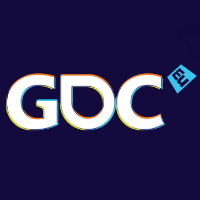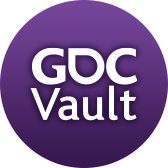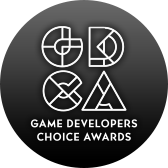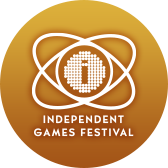The big GDC Europe 2016 conference is kicking off next week in Cologne, Germany, and today organizers would like to once again briefly highlight some of the great talks taking place at the show.
Also, it's important to note that you have until this Wednesday, August 10th at 11:59 PM Pacific to register online to attend the show. After that deadline, you'll have to register on-site -- at an increased price!
There's too many notable sessions to run down in a single blog post, so today we're going to continue our efforts to draw out specific highlights by focusing on two more big tracks of talks at GDC Europe: The Design track and the Programming. Each is perennially popular and has its own distinct focus, and together they're a great mix of intriguing design questions and practical game-making insight.
Here's a great example: Matthew Luhn, a veteran storyteller with over 20 years of experience at Pixar Animation Studios, working on everything from Toy Story to Finding Nemo and Up, is coming to GDC Europe to share his wisdom with developers looking to tell great stories in games.
Check out his talk, "Creating Stories for Games," where Luhn will share his creative process for developing great ideas and stories, and how the game industry can utilize these techniques to push the boundaries of interactive storytelling.
You'll walk away with lots of practical tips you can use in your own work, including advice on how to:
- Make audience and character interaction compelling and emotional
- Communicate a unique and compelling story in 30 seconds to 3 minutes
- Create well structured stories with the Story Spine
- Harness the "Universal Truths" that connect with all people
And in "The Living World of 'The Witcher'", CDPR lead technical designer Matthew Steinke will take the stage to discuss the trials and triumphs he encountered while designing and developing an open-world experience with sandbox gameplay elements like alchemy, crafting and the economy.
It was a significant challenge, and in his talk Steinke will discuss lessons learned about creating a role-playing game that offers an immersive, rewarding experience for players who choose not to engage in its primary quest lines. He'll also showcase how the Wild Hunt team integrated feedback from players into their work on the game, and outline some key decisions made to create one of the standout games of last year.
Over on the Programming track, Playdead visual effects artist Mikkel Svendsen and graphics programmer Mikkel Gjoel will speak at GDC Europe about techniques you can use to achieve striking, high-fidelity visuals in your next game.
Their talk, "Low Complexity, High Fidelity - Inside Rendering," will describe the variety of effects used to achieve an atmospheric look, including local shadowed volumetrics and a robust water-rendering system, in their recently-released hit game Inside.
To explore how a unique art style is created technically they'll also show you how they authored lighting as entirely separate diffuse, specular and bounce-light entities, while focusing on artist-approachable tools meant utilizing analytic primitive-based ambient occlusion and screenspace reflections.
Plus, there'll be an excellent talk from Remedy Entertainment's Ethan Watson about how the studio built its hit 2016 action game Quantum Break using the D programming language.
"D: Using An Emerging Language in Quantum Break" is a notable talk about a language that's rarely discussed in game development, and Watson aims to answer important questions like: what benefits does D have over C++? Is it ready for mass use? Does treating code as data with a traditional C++ engine work?
His talk will cover Remedy's usage of the D programming language in Quantum Break and also provide some details on where the studio wants to take usage of it in the future. Make sure to check it out if you're interested in gaining knowledge of a realistic alternative to C++, an understanding of D's real world usage and insight into what the possibilities could be for your own usage.
More details on these and all other announced talks are now available in the online GDC Europe 2016 Session Scheduler, where you can plan out your conference week and later export it to the up-to-the-minute GDC Mobile App!
GDC Europe 2016 will also continue to offer business and matchmaking opportunities to all attendees with a developer-focused Expo Floor area and networking events throughout the show. For more information, please visit the GDC Europe website.
Gamasutra and GDC are sibling organizations under parent UBM Americas



